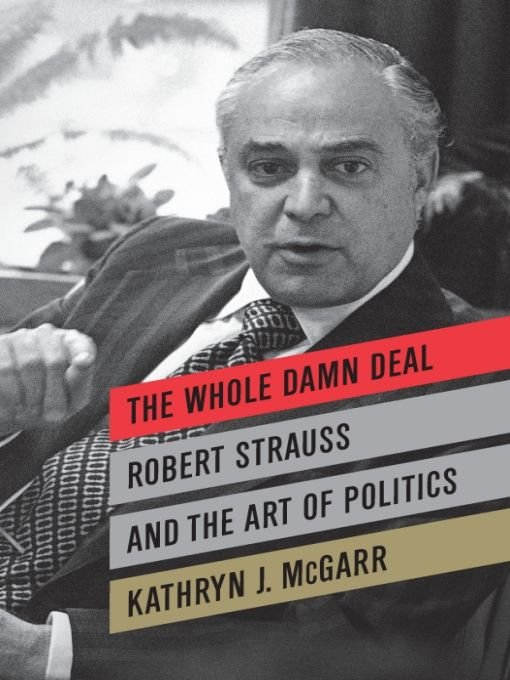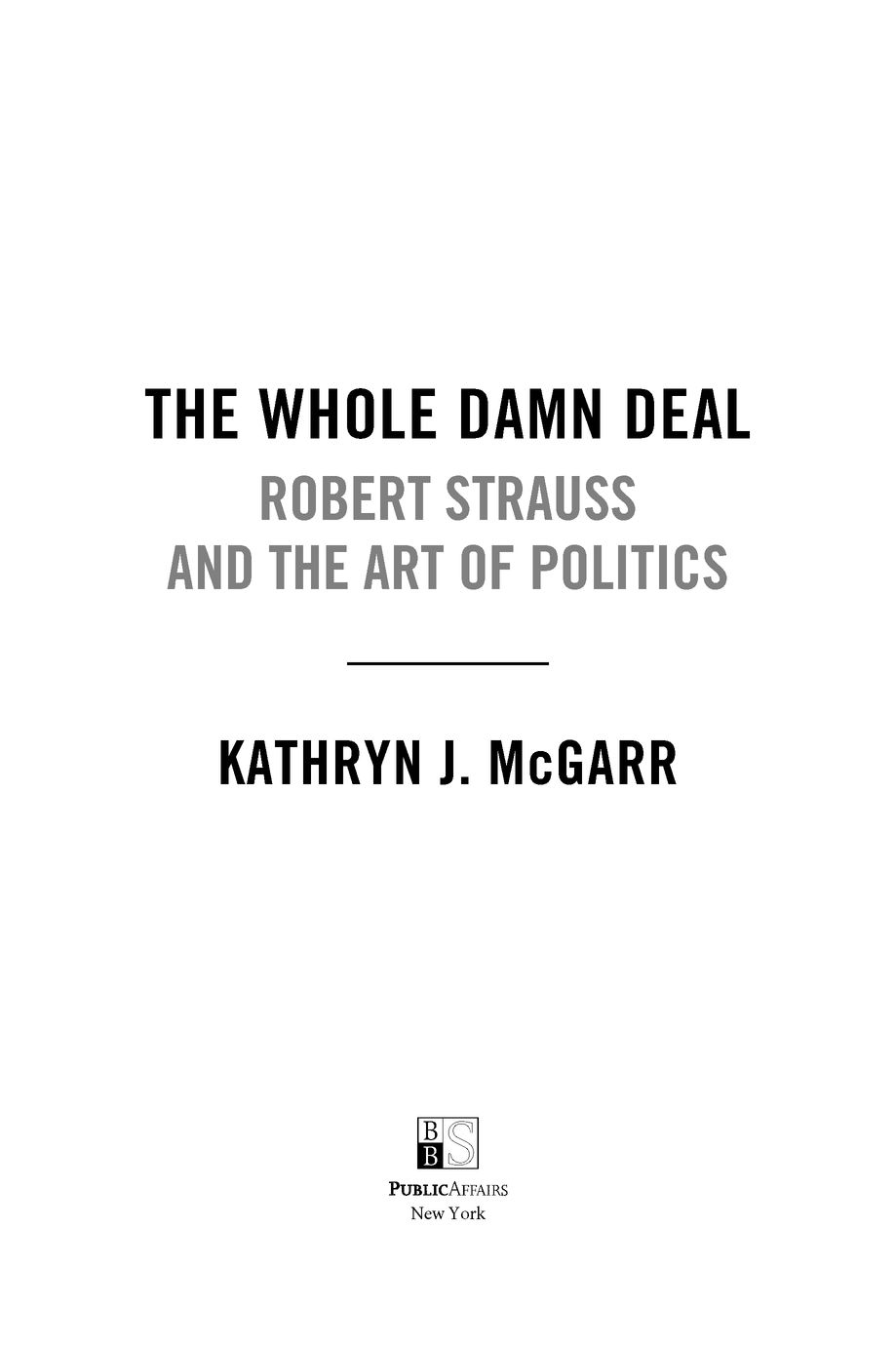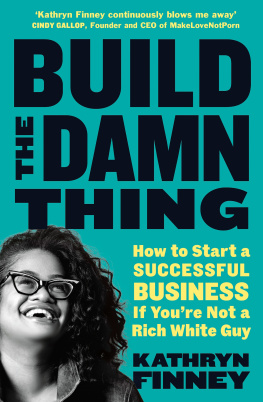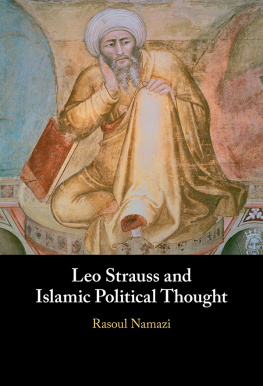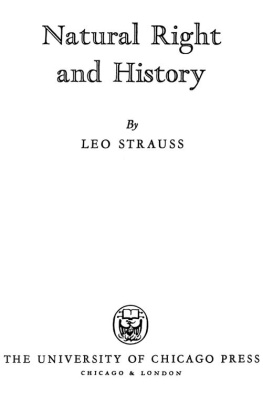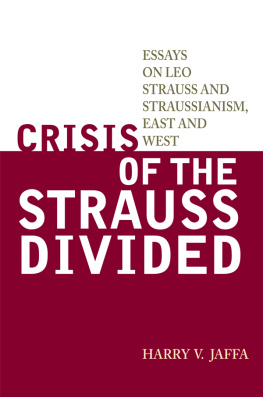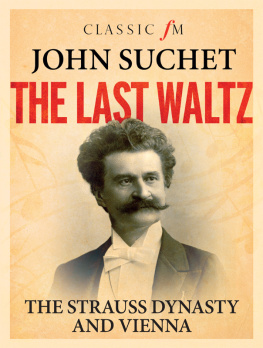Table of Contents
For JT
A friend of yours asked me just within the last couple of months, Bob, what do you like best about your entire career? And I said, This is sort of crude, but to tell you the truth, I like the whole damn deal.
BOB STRAUSS, AGE 83, TO AL HUNT ON
CNNS CAPITAL GANG, MAY 4, 2002
INTRODUCTION
Washingtons Ultimate Insider
WASHINGTON KNEW BOB STRAUSS, one of the towns most colorful and beloved figures since the 1970s, as the consummate power broker and ultimate insider. Strauss had a giants reputation. He was the most powerful Democrat, as PBS NewsHour anchor Jim Lehrer recently put it, and the capitals leading wise man, according to the New York Times in 1987.
Strauss has become a symbol of a bygone era of civilized politics when Republicans and Democrats worked together to get things done, when they could do so without fear of retribution by their constituents, and when politicians had close friendships with the press. I dont think they make them like that anymore, Tom Brokaw said recently of Strauss. In part because he at once loved the game of politicshe knew how to make money in Washington, which is not unimportant, by representing lots of different interestsbut he was never not a citizen. He really cared about the country, and cared about getting the right things done.
He embodied a typea Bob Strauss, as journalists still put it to this day. With the national Republican Party in turmoil in April 2010, Chris Matthews asked on his MSNBC show Hardball, Is there a big deal in the Republican Party, a male or female boss from the old school, a Bob Strauss, for example, from the Democratic Party? Strauss was able to pull people together, regardless of their politics, to make government work. This would have made him an important asset at any time in the nations historybut one of the most remarkable things about Strauss is that he did it at a time when the country was being torn apart by unprecedented cultural upheavals.
Strauss first gained prominence in Washington as chairman of the Democratic National Committee just as the party seemed to be disintegrating. He unified the Democrats after Richard Nixons landslide victory over liberal senator George McGovern in the presidential election of 1972, enabling Jimmy Carter to occupy the Oval Office four years later. In light of Watergate, its easy to forget that President Nixon was ever popular enough to win forty-nine states in the electoral college, or that the DNC could barely pay to keep its phone lines open. At the time, however, Democrats were in such bad shape, both financially and ideologically, that commentators were predicting the end of the two-party system. In the late 1960s and early 1970s, Democrats were split between the conservative base and the liberal, McGovernite wing of the partymuch as right-wing Republicans today have splintered into the Tea Party.
Strauss held the Democrats together long enough to produce their first successful convention after Chicagos 1968 disaster, the tightly run 1976 convention in New York City, where Carter won the nomination. Through compromise, Strauss created a coalition of old-guard conservatives, minorities, youth, and representatives of both labor and big business that resembled the patchwork Democratic Party we still have to this day. The party was really torn apart, said another former DNC chairman, Donald Fowler, years later. It needed a special treatment. It needed a special leader, and Bob fit the times.
During the Carter administration, Strausss playing field expanded internationally as he operated as Americas chief trade negotiator and ubiquitous presidential adviser. In 1979, when Congress was fiercely protectionist, Straussas Carters special trade representative, a cabinet-level postlobbied the Hill so intensely that his bill implementing the Tokyo Round of the GATT trade negotiations passed 90-to-4 in the Senate and 395-to-7 in the House. The extent of the bipartisan cooperation on a controversial bill, unpopular in most districts, was rare enough at the time. In todays toxic climate, its unthinkable. Republicans foremost reason for trying to scuttle the 2010 health care bill was to break the presidentto make it Obamas Waterloo, as Republican senator Jim DeMint put it. Carter was hardly popular with Congress either, but there was a way to get business done on Capitol Hill in that era. Strauss finessed the trade bill so skillfully that, despite its unpopularity, Congress passed it overwhelmingly.
Whenever the Carter White House faced an insoluble problem, it sent in Strauss, its pinch hitter for everything from disputes within Washington to difficult domestic matters and far-flung international conflicts. Strauss helped gain passage of the Panama Canal Treaty, was a key actor in settling a major coal strike, served as inflation czar, and represented the president in Middle East peace negotiations. For his service to the country, Carter awarded him the highest civilian honor, the Presidential Medal of Freedom, in 1981.
With his unmatched popularity on the Hill, Strauss epitomized the ability to make things happen in the political arena with little of the rancor and ideological cheesiness dominating todays politics. As Jim Johnson, a notable Washington Democrat, put it, No one was the equal to Bob Strauss in the breadth of relationships, the span of influence, the capacity to solve problemswithin the Democratic Party, for sure, and beyond the Democratic Party in many casesbecause of his willingness to be broadly open to people who were not traditional Democrats.
Her husband, George H.W. Bush, first befriended Strauss when, in December 1972, they both became chairmen of their respective party national committees. Almost twenty years later, in 1991, President Bush appointed Strauss ambassador to the Soviet Unionan extraordinary posting. Although Strauss was not a Sovietologist, he went to Moscow during a critical period of transition. Bush, in close consultation with Strausss longtime friend Secretary of State Jim Baker, sent Strauss to signal to Soviet president Mikhail Gorbachev that America took its relationship with the Soviets seriously. Because they were sent a close personal friend of the president, the Russians had a direct line to the White House. Just two months later, Strauss would land in Moscow in the middle of the coup of August 1991 that resulted in the ascent of Boris Yeltsin. Shortly thereafter, the Soviet Union broke apart, rendering Strauss the last ambassador to the Soviet Union and the first to the new Russian Federation. He cultivated the relationship between Yeltsin and the United States while raising morale at the embassy in Moscow and laying the groundwork for future American investment in Russia.
The New York Times once called Strauss one of Washingtons most adept and respected practitioners at bobbing in and out the revolving door. When he was not in government, he was a super-lawyer. Throughout his political career, he built up the law practice he had founded in Dallas in 1945 with Dick Gump, now Akin, Gump, Strauss, Hauer and Feld. In June 1991, just before Strauss left for Moscow, the National Journal ran a story positing that super-lawyers in Washington were going the way of the dinosaur. The article, which led with the line, Every Washington lawyer envies Robert S. Strauss, commented that Strausss blend of special talents was unequaled. With Strauss headed for Moscow, renowned defense attorney Edward Bennett Williams having died three years earlier, perennial and sage presidential adviser Lloyd Cutler at age seventy-three, and Clark Clifford, who had the bearing of a man who always knew the right thing to do, now embroiled in scandal, this was the end of the line for super-lawyers of the revolving door, Mr. Fix-It, variety.

